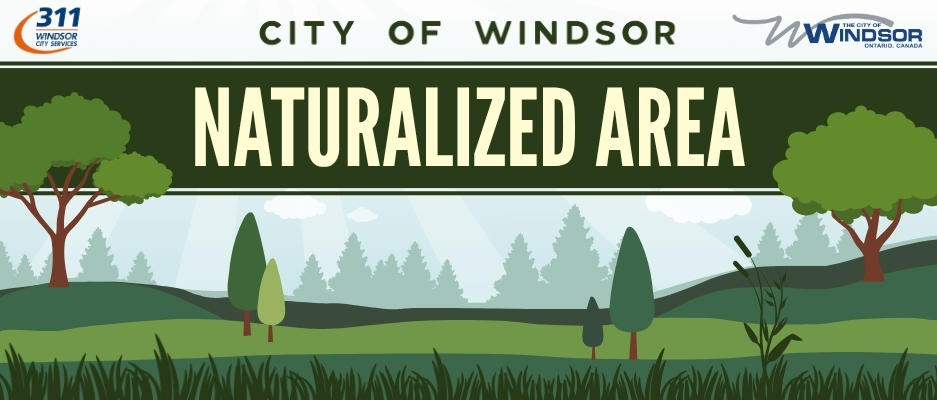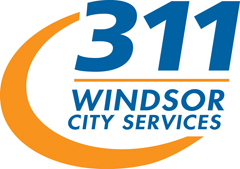Naturalized Areas

In 2025, the City of Windsor introduced reduced-maintenance areas in select parks and open spaces, known as “Naturalized Areas.”
Portions of these spaces will be maintained in a naturalized state to support environmental resilience and deliver a range of community benefits. Allowing native grasses and plants to grow improves soil health, reduces water runoff, and helps mitigate the heat island effect. These naturalized areas foster diverse landscapes that attract pollinators and improve air quality. The seasonal colour and texture created by these spaces offer inviting green areas for the community, promoting mental and physical well-being.
These areas require less frequent mowing, which reduces emissions from maintenance equipment, and lowers ongoing maintenance costs. To support visibility and maintain clear circulation, a regularly mowed buffer will be maintained along sidewalks and pathways, and adjacent to residential properties. Overall, naturalization contributes to a healthier, more sustainable city, benefiting the community at large.
While these areas may appear sparse or unkempt in the early years, they will gradually blend in and develop a more natural appearance over time.
As part of the 2025 budget, the City is transitioning approximately 22 parks to include naturalized areas. While these spaces may initially appear sparse or less manicured, they are designed to evolve over time — gradually developing a richer, more natural landscape that blends seamlessly with the surrounding environment.
Why Naturalize?
- Ecological benefits: Introduces plant diversity that supports birds, mammals, and pollinators by providing food and shelter
- Environmental benefits: Improves air quality, reduces urban heat island effects, and helps manage stormwater runoff
- Educational benefits: Encourages ecological literacy and outdoor learning, especially when paired with school or community programs
- Recreational benefits: Offers opportunities for nature-based recreation, which supports mental health and encourages diverse park use
Frequently Asked Questions
The City of Windsor is launching a no-mow approach in select areas of some parks and open spaces. Those areas will no longer be mowed by City crews.
The no-mow approach will help the City cut costs, reduce greenhouse gas emissions, and avoid damage to trees. It will also support the creation of strategic naturalized spaces throughout the city.
No, workers will continue to mow many parts of the City of Windsor parks and open spaces. The no-mow approach is targeted at select areas that are less frequently used by the public.
City crews will continue to mow high-use areas like playfields and around park infrastructures like playgrounds.
A mown strip will also be maintained adjacent to curbs, roadways, sidewalks, and pathways.
The “no-mow” approach was approved as part of the 2025 budget by City Council. This strategy offers several benefits, including cost savings, reduced greenhouse gas emissions from mowing equipment, and less risk of damaging trees through incidental contact.
In the longer term, it also supports the development of more naturalized spaces across the city, contributing to a healthier and more resilient urban environment.
There is no evidence to suggest that naturalizing a portion of parkland increases the risk of encountering a tick or mosquito in that area. What is important to know is that ticks and mosquitoes are found throughout the city because the animals that carry ticks, and the breeding habitats that support mosquitoes, also occur throughout the city. Many experts agree that the rise in ticks across the Great Lakes region is due to numerous interconnected factors, including climate change, land use and development activities, and declining biodiversity. Naturalization aims to reverse these factors and improve ecological balance in an urban environment, which benefits us all.
If you have questions or concerns about park maintenance, please call 311.
For detailed inquiries, please contact:
Parks and Recreation
2450 McDougall Street
Windsor, Ontario, Canada, N8X 3N6
Telephone: (519) 253-2300
Fax: (519) 255-7990
Email: parkrec@citywindsor.ca

